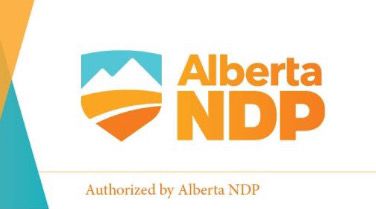
Alberta is Calling | Building a Future with Alberta
The government of Alberta has launched a new campaign to attract skilled, educated and motivated talent to consider moving their careers and future to Alberta.
The Alberta is Calling campaign launched in the Toronto and Vancouver markets today, and it will highlight the many cost-of-living, career, and lifestyle advantages of life in Alberta, including the highest average wages and lowest taxes in the country, homeownership in a major city for a fraction of the cost, shorter average commute times, career opportunities in emerging and growing industries, easy access to world-famous mountain parks for year-round hiking, skiing, biking and over 300 days of sunshine per year.
The campaign website can be viewed at albertaiscalling.ca
The Important Facts You Need to Know
Alberta has seen growth in sectors including film and television, technology, agriculture, renewable energy, aviation and logistics. This diversification means that job seekers have more opportunities to expand their skillsets and succeed in their chosen field.
The $2.6-million dollar campaign will make a splash across social media and other digital spaces, on radio, and in high-traffic locations across Vancouver and Toronto. It launches in two phases – the first phase today and the second phase in mid-September – with additional high-impact tactics in both markets.
- Job vacancy rates are high, with more than 100,000 open jobs.
- 78% of Alberta businesses report shortages restricting their ability to meet demand.
- Alberta has seen the highest employment growth in the country in 2022.
- Between December 2021 and July 2022, employment in Alberta increased by 68,200 jobs compared to an increase of 47,800 in Ontario and 45,400 in British Columbia, despite both having larger populations.
- Alberta workers continue to have the highest earnings across all provinces.
- Alberta’s $1,251 average weekly earnings (May 2022) are the highest in the country (second highest is Ontario at $1,197/week, and third is B.C. at $1,159/week).
- According to Statistics Canada’s 2020 Canadian Income Survey, released in March 2022, Alberta families earned a median after-tax income of $104,000 in 2020, which is more than $7,000 higher than Ontario and nearly $10,000 higher than families in British Columbia.
- Housing is more affordable in Alberta than in Vancouver or Toronto.
- The Demographia International Housing Affordability study, released in March 2022, named Edmonton and Calgary among the top 10 most affordable housing markets when compared to 92 major cities around the world.
- According to Canadian Real Estate Association (CREA) data, the average home sale price over the last three years in Edmonton was $383,000 – 34% of the price in Greater Vancouver and 38% of the price in Greater Toronto, respectively.
- The average home sale price in Calgary was $484,000 – 43% of the price in Greater Vancouver and 48% of the price in Greater Toronto, respectively.
- CREA data shows that home prices are significantly more stable in Alberta as well:
- Over the last 10 years, home sale prices in Edmonton have grown by 18% and in Calgary by 21%.
- Over the same period, home sale prices in Vancouver increased by 52% and in Toronto by 135%.
- CMHC’s February 2021 Rental Market Report shows that rents are more affordable in Alberta. Over the last three years:
- Average rent in Edmonton was 71% of that in Vancouver, and 79% of that in Toronto.
- Average rent in Calgary was 74% of that in Vancouver, and 82% of that in Toronto.
- The Demographia International Housing Affordability study, released in March 2022, named Edmonton and Calgary among the top 10 most affordable housing markets when compared to 92 major cities around the world.
- Alberta families generally pay lower personal taxes (for 2022, considering annual family incomes of $75k, $150k, and $300k).
- Compared to B.C., an Alberta family with two children will pay on average $1,400, $4,900 and $13,100 less in taxes respectively.
- Compared to Ontario, an Alberta family with two children will pay on average $3,800, $8,700, and $20,700 less in taxes respectively.
- Alberta has no provincial sales tax, payroll tax or health premiums.
- Workers in Edmonton and Calgary spend less time commuting.
- In the 2016 Census, workers in Edmonton* and Calgary* spent on average 25.9 and 26.5 minutes commuting to work (one-way), respectively. This compares to 34.0 minutes in Toronto* and 29.7 minutes in Vancouver*.
- Alberta saw the highest net interprovincial migration in Canada, at 5,351 people, in the first three months of 2022.
- Calgary was recently named the world’s third most livable city by the Economic Intelligence Unit’s rankings
Read more news around Alberta.



